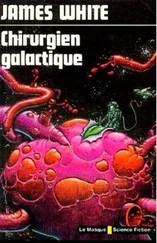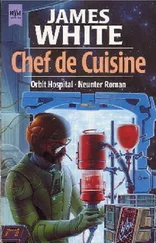James White - Un-Birthday Boy
Здесь есть возможность читать онлайн «James White - Un-Birthday Boy» весь текст электронной книги совершенно бесплатно (целиком полную версию без сокращений). В некоторых случаях можно слушать аудио, скачать через торрент в формате fb2 и присутствует краткое содержание. Год выпуска: 1996, Издательство: Dell Magazines, Жанр: Фантастика и фэнтези, на английском языке. Описание произведения, (предисловие) а так же отзывы посетителей доступны на портале библиотеки ЛибКат.
- Название:Un-Birthday Boy
- Автор:
- Издательство:Dell Magazines
- Жанр:
- Год:1996
- ISBN:нет данных
- Рейтинг книги:5 / 5. Голосов: 1
-
Избранное:Добавить в избранное
- Отзывы:
-
Ваша оценка:
- 100
- 1
- 2
- 3
- 4
- 5
Un-Birthday Boy: краткое содержание, описание и аннотация
Предлагаем к чтению аннотацию, описание, краткое содержание или предисловие (зависит от того, что написал сам автор книги «Un-Birthday Boy»). Если вы не нашли необходимую информацию о книге — напишите в комментариях, мы постараемся отыскать её.
Un-Birthday Boy — читать онлайн бесплатно полную книгу (весь текст) целиком
Ниже представлен текст книги, разбитый по страницам. Система сохранения места последней прочитанной страницы, позволяет с удобством читать онлайн бесплатно книгу «Un-Birthday Boy», без необходимости каждый раз заново искать на чём Вы остановились. Поставьте закладку, и сможете в любой момент перейти на страницу, на которой закончили чтение.
Интервал:
Закладка:
“It’s all right,” he said quickly. “He can do it again if he wants to. The food you give me is all right, too, and I don’t mind getting other people’s old presents. But I’m not as stupid and clumsy as I was, you saw me flying in the Center and, and I’ll try to be better and not break things and speak my words properly and—”
Suddenly he turned and wrapped his arms so tightly around her that she moaned and her breath puffed into his face. He had forgotten that he was not supposed to hug the other members of the family like that.
“I’m sorry,” he said, letting his arms fall loose again. “It’s just that today was nice, the nicest day I ever had. Even Danal and Cawn like me now and, and I’m getting smarter. Please, I don’t want to be sent away.”
The others had stopped eating and playing their games to look at their mother. Danal said, “Why should he be sent away?”
When she replied she was looking only at him but seemed to be answering everybody.
“I’m sorry,” she said, “but you don’t belong here. You already know or suspect some of this, because sometimes the boys say things they shouldn’t. But this may be the last chance I have to tell you how you came to be here and why you have to go away. I believe that you have become intelligent enough to understand what I’m saying.”
He had been found as a very young infant who was close to death in a survival pod that was thought to have come from a small ship which had detonated nearby, scattering its wreckage so finely that they had been unable to discover anything about the number or identity of the occupants. The incident had been reported to the child care authorities on the home world, but that was very far away and the response time was expected to be in proportion to the distance. As a temporary measure, because of his father’s profession plus the fact that they were the only couple with children on the station, they had offered themselves as temporary foster-parents.
They had not thought that the period would be a lengthy one because everyone had expected him to die.
“But you didn’t die,” she went on, “although many times we thought you would. Especially when the nice, ordinary food we tried to give you brought out a rash on your entire body, or raised your temperature or made you throw up or dirty your bed. You kept growing bigger but not much smarter and you couldn’t talk right and you broke things all the time. We didn’t know what was wrong with you, and when your father tried to find out, you cried and I made him stop it. The stuff we give you now doesn’t taste nice, but it is specially prepared so as not to make you sick. We hadn’t the proper facilities for treating you here and our authorities, who would know better what to do, have been very slow to respond so that we became the only family you had.
“We tried to treat you and love you as one of the family,” she went on, placing her other thin, boney arm tightly around him, “we really did. Your father and I, I mean your foster-father and I, came to like you a lot, and we will miss you. But now we have to pass you on to people who will know how to treat you properly. You have never been happy here and—”
“But I’m happy now—” he began, when the voice of his father on the communicator made him break off.
“We’re ready for the handover,” he said over the sound of many other voices talking loudly in the background. “Quickly, dear, bring him to the rec room. Bring everyone to the rec room.”
That was a room big enough to hold everyone on the station, his mother had once told him, which was fitted with machines and games that exercised the body as well as the mind. She had laughed and added that only grown-ups were allowed to go there because the adults drank things that were not suitable for children. Now he would be able to see it but he didn’t want to go.
“No!” his mother replied in a voice even louder than his father’s. “It’s been hard enough trying to say goodbye to him here. Having to do it all again in public wouldn’t be fair to him or the other children, or me. Give us a few more minutes together, then I’ll bring him to you.”
“You don’t understand, dear,” said his father. “Bring everybody. You’ll all want to see this. They sent another doctor to look after him. But it wasn’t our child care authorities who sent her, it was theirs! ”
He was afraid, and on the way he hung back for as long as possible until his mother pushed him through the recreation room door. But when he saw the figure standing in a clear area of floor beside a table that barely came up to her knees, something so strange and wonderful happened in his mind that he could hardly breathe.
She was big and thick and so tall that her head almost touched the room ’s high ceiling. Her legs and arms and body bulged out so much that they made her white coveralls look tight, and there were two big, soft bulges on the front of her chest. She had a big head, too, and hair like his except that it was black with gray streaks in it. Without knowing why, he let go of his mother’s hand and ran to her. She knelt down quickly so that he ran straight into her open arms.
They squeezed him so tightly that he could hardly breathe. But they were big, soft arms, not like his mother’s thin, hard ones, so they didn’t hurt him. Her eyes were like his, too, because they were beginning to get wet.
She pushed the soft, pink edges of her mouth against his forehead for a moment, which was the first time anyone had done that to him, then gently moved his arms from around her neck and stood up. Looking at the people crowding the room, she began to speak nonsense words. But there was a box on the table beside her which repeated them so that he knew what she was saying even though he didn’t understand all the words.
“Based on the elapsed time since the accident to their survey vessel,” she said, “plus the genetic information available to us on his parents’ medical files, which dictates the hair and eye coloring and other inherited physical characteristics, I have no doubt that this is their son. Because of the vast distances involved between the accident site and our respective home worlds, the bureaucratic delays, the general disbelief on both sides that it was possible for him to survive for so long, a very long time passed before we learned about the survivor or your people would allow us to do anything about him. Regrettably, the greater share of the blame is ours because, instinctively, and we now realize mistakenly, our two cultures disliked and distrusted each other and deliberately avoided making the contact in depth that would have reduced our growing hostility. But this incident, the way you have cared for this child as one of your own, will end what could have become a very dangerous situation.
“The major responsibility for that,” she went on, looking only at his father, “lies with you, Doctor, and your family. With minimum physiological information and a subject who was too young to be able to speak or help himself, not only did you devise the food regimen that enabled him to survive in good health, your family adopted him, cared for and brought him up as one of your own. Fostering such a child must have posed extreme difficulties for everyone concerned, and if the positions had been reversed I do not believe that I could have coped with them, but I am sure that my later physical examination will only confirm the fact that you have raised a strong and healthy seven-year-old Earth-human boy. My sincere professional and personal compliments to all of you.
“Now that we are beginning to learn more about your culture,” she continued, “including the deep significance you place on a person’s birthdate and correct personal identification, I can tell you that his name is Thomas Carmichael although, because of his youth, we would call him Tommy…”
Читать дальшеИнтервал:
Закладка:
Похожие книги на «Un-Birthday Boy»
Представляем Вашему вниманию похожие книги на «Un-Birthday Boy» списком для выбора. Мы отобрали схожую по названию и смыслу литературу в надежде предоставить читателям больше вариантов отыскать новые, интересные, ещё непрочитанные произведения.
Обсуждение, отзывы о книге «Un-Birthday Boy» и просто собственные мнения читателей. Оставьте ваши комментарии, напишите, что Вы думаете о произведении, его смысле или главных героях. Укажите что конкретно понравилось, а что нет, и почему Вы так считаете.












